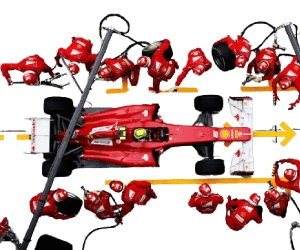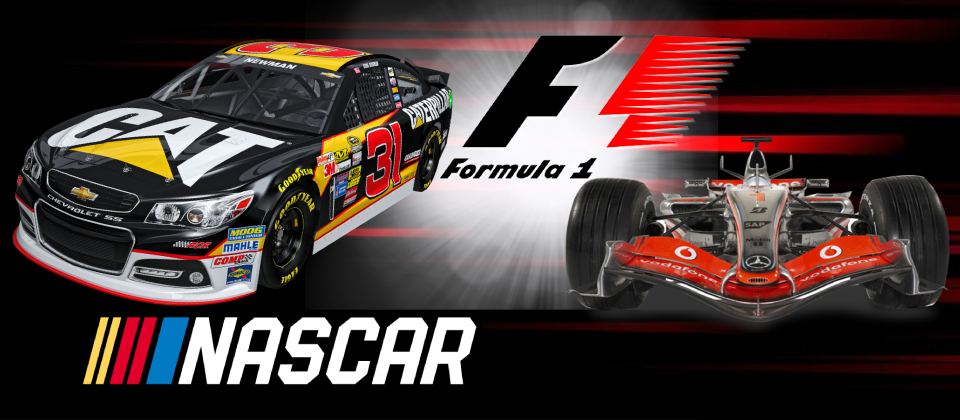The debate comparing Nascar vs Formula 1 resonates within the racing community. It’s a global argument, with fans from all corners of the world weighing in on it. This article aims to dissect this debate, providing an objective analysis of these two giants in the motor racing world. By exploring the origins, speed, popularity, race format, technical aspects, and fan experiences, this article will shed light on the Nascar vs Formula 1 discussion.
Nascar and Formula 1 are both renowned motor racing brands, each with its unique appeal. But the question remains: which one stands superior? It isn’t easy to provide a definitive answer, as both have their strengths and weaknesses. The ultimate decision often boils down to personal preference. However, by examining these races from various angles, we can gain a deeper understanding.
The Origins: Nascar and Formula 1
The history of Nascar dates back to the late 1940s. It was born out of the need for a governing body to oversee stock car races in the United States. Since then, NASCAR has grown into a household name, with its races attracting millions of viewers. The thrilling high-speed races on oval tracks have become a staple of American sports culture.
On the other hand, Formula 1 emerged in the 1950s, with its origins in European road racing. It quickly gained popularity due to its fast-paced and technically advanced races. Over the years, Formula 1 has evolved into a global phenomenon, with races held in various parts of the world. The high-octane, precision-based racing offered by Formula 1 has captivated audiences worldwide.
The origins of both NASCAR and Formula 1 provide insights into their unique characteristics. While NASCAR is deeply rooted in American culture, Formula 1 has a more global appeal. This distinction is one of the key factors that fuel the Nascar vs Formula 1 debate.
Speed Comparison: Nascar vs Formula 1

One of the most debated topics is NASCAR vs Formula 1 speed. When comparing Nascar vs Formula 1 speed, it’s crucial to understand the unique elements that influence the velocity of these races.
Nascar races are known for their high-speed, wheel-to-wheel action. The cars are designed to withstand intense side-by-side racing at speeds exceeding 200 mph. However, due to the nature of the oval tracks, the average speed in Nascar races is often lower than that of Formula 1.
Formula 1, on the other hand, is renowned for its lightning-fast races. The cars are technologically advanced and designed for speed and agility. They can reach speeds of up to 230 mph, with the average speed often being higher than NASCAR due to the nature of the circuit tracks.
While Formula 1 races tend to be faster, it’s important to note that speed is just one aspect of these races. The thrill of Nascar races comes from the intense, close-quarter racing, while Formula 1 offers high-speed, technical racing.
Popularity: Formula 1 vs Nascar Globally
Another key point in the Nascar vs Formula 1 debate is their global popularity. When comparing Formula 1 vs Nascar’s popularity, several factors come into play.
NASCAR enjoys immense popularity in the United States, where it is considered a major sport. The thrilling races, coupled with the unique fan culture, have helped NASCAR carve a niche for itself in American sports.
On the other hand, Formula 1 has a more global reach. It is immensely popular in Europe and has a growing fan base in various parts of the world. The international appeal of Formula 1 is one of its defining characteristics.
While NASCAR reigns supreme in the United States, Formula 1 has a broader global appeal.
The Race Format: How Nascar and Formula 1 Differ
Nascar races are typically longer, with more cars on the track. They are marked by intense, wheel-to-wheel racing on oval tracks. The race format in NASCAR allows for more overtaking, leading to thrilling, unpredictable races.
In contrast, Formula 1 races are shorter and more technical. They take place on a variety of circuits, with each race presenting unique challenges. The format of Formula 1 races emphasizes strategy and precision, with overtaking often being a complex maneuver.
These differences in race format highlight the unique appeals of NASCAR and Formula 1. While NASCAR offers thrilling, unpredictable races, Formula 1 offers high-speed, technical races.
Technical Differences between Nascar and Formula 1
A major point of contention in the Nascar vs Formula 1 debate is the cars themselves. The technical differences between NASCAR vs Formula 1 speed cars are significant and contribute to the unique characteristics of these races.

NASCAR cars are based on production models modified for racing. They have a simpler design and fewer technological advancements compared to Formula 1 cars. Their robust build allows for intense, side-by-side racing.
In contrast, Formula 1 cars are bespoke racing machines brimming with cutting-edge technology. They are designed for speed and agility, with each component meticulously engineered for performance. The technologically advanced nature of Formula 1 cars is a key factor in its appeal.
The technical differences between NASCAR and Formula 1 cars highlight the distinct appeals of these races. While NASCAR offers intense, wheel-to-wheel racing, Formula 1 offers high-speed, precision-based racing.
Nascar and Formula 1 Race Circuits
The tracks on which the NASCAR and Formula 1 races take place also contribute to the ongoing debate. NASCAR races primarily take place on oval tracks. These tracks allow for high-speed, close-quarter racing, leading to thrilling races.
On the other hand, Formula 1 races occur on a variety of circuits. These include street circuits, road courses, and hybrid tracks. Each track presents unique challenges, adding to the complexity of Formula 1 races.
The differences in racetracks highlight the unique characteristics of the Nascar and Formula 1 races. While NASCAR offers high-speed, wheel-to-wheel racing on oval tracks, Formula 1 offers complex, technical racing on a variety of circuits.
Star Power in Nascar and Formula 1
NASCAR has produced many household names, such as Dale Earnhardt and Jeff Gordon. These drivers have become synonymous with the sport, contributing to its popularity.
Similarly, Formula 1 has also produced many legendary drivers, including Ayrton Senna and Lewis Hamilton. These drivers have left a significant impact on the sport, adding to its global appeal.
Both Nascar and Formula 1 have produced legendary drivers, contributing to their respective appeals. This star power is a significant factor in the Nascar vs Formula 1 debate.
Formula 1 vs Nascar Popularity
The Formula 1 vs NASCAR popularity is distinctly different, further fueling the debate. Nascar is known for its unique fan culture. The close proximity of the fans to the action, coupled with the festive atmosphere at the races, makes for a unique experience.
On the other hand, Formula 1 races offer a different kind of fan experience. The high-speed, technical races, coupled with the global nature of the sport, make for a unique spectacle.
While NASCAR offers a unique, immersive fan experience, Formula 1 offers a high-speed, international spectacle. The differences in fan experiences contribute to the Nascar vs Formula 1 popularity.
Conclusion
The Nascar vs Formula 1 debate is a complex one, with many factors contributing to it. While NASCAR offers high-speed, wheel-to-wheel racing with a deep-rooted American fan culture, Formula 1 offers high-speed, technical racing with a global appeal. The differences in origins, speed, popularity, race format, cars, tracks, drivers, and fan experiences highlight the unique appeals of these races.

